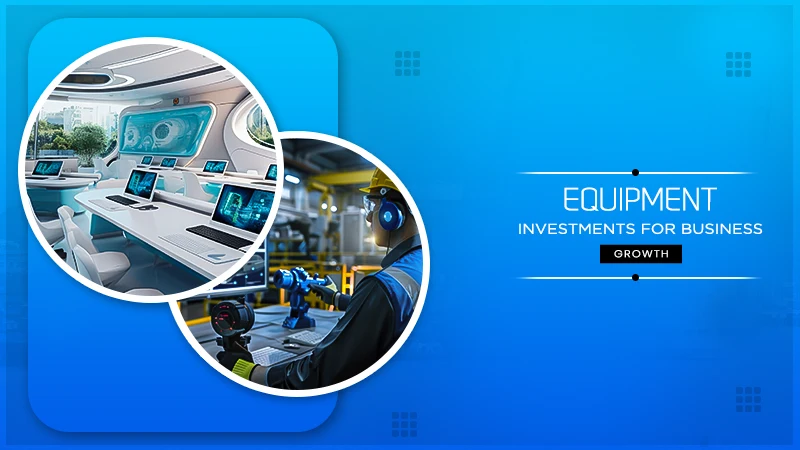Small businesses often explore the potential for cost savings, and eco-tax benefits can significantly assist them in reducing utility costs, along with supporting eco-friendly and sustainable practices.
However, these incentives are offered by both local and national programs, as businesses that opt for sustainability can avail optimal benefits from these programs.
Read our detailed article, which can help you analyze the options that your business qualifies for to reduce costs and go green simultaneously. Discover options and start capitalizing on eco-tax benefits today.
Energy-Efficient Upgrades Can Lead to Big Savings
Upgrading and investing in sustainable resources, such as energy-efficient appliances, lighting, and insulation, brings optimal tax benefits with credits or deductions, along with significantly lowering your utility bills. It is evident that the government recognizes efforts that reduce carbon emissions.
Moreover, small businesses can achieve significant cost savings by utilizing energy improvements, as they have high initial costs but promise the potential to deliver prominent benefits. These upgrades bring optimal savings and provide several tax advantages that neutralize the initial investment.
Recycling and Waste Reduction May Qualify for Deductions
Cutting down and lowering wastage is highly beneficial for the planet and your budget, as several programs provide optimal deductions for organizations that utilize recycling or waste management systems.
Furthermore, opting for sustainable cleaning items, such as laundry sheets made in the USA, can significantly assist businesses in attaining green purchasing goals and provide opportunities for eco-tax benefits.
This includes:
- Composting to recycle organic matter.
- Using reusable packaging, such as sturdy containers that can be used again.
- Setting up in-house recycling system with clear guidelines.
Subsequently, this assists the businesses in reducing landfill charges and achieving sustainability goals, along with delivering eco-tax benefits. However, to avail these eco-tax benefits, you need to maintain records for claims settlement during tax filing.
Switching to Clean Energy Opens More Incentives
To qualify for tax credits, businesses can use solar, wind, or other renewable energy sources, as these clean energy options are built to last longer. Furthermore, the excess energy can be sold back to contribute as another revenue stream.
The tax breaks significantly enhance the return on investment while providing the potential to cover installation costs. Subsequently, its benefits apply across all industries, including Tax Planning for agriculture or retail. However, it is advisable to ensure that the equipment and setup are according to the required standards to achieve tax benefits.
Green Vehicles Help Lower Tax Bills
Green vehicles, such as electric and hybrid vehicles used for business operations, offer optimal tax benefits with credits for purchase and sometimes for charging stations. Additionally, these vehicles often incur lower maintenance costs.
With the increase and changes in fuel prices, these clean vehicles tend to be a smart choice due to their durability and efficiency. Furthermore, they assist in lowering carbon emissions and achieving green transport targets, along with optimal tax advantages, especially for fleets.
Sustainable Building Materials Can Offer Write-Offs
With the optimal utilization of eco-friendly building materials for fresh construction or renovations, businesses can qualify for deductions. Consequently, it is essential to use materials less hazardous to the environment, such as bamboo flooring, low-VOC paints, mass timber (CLT), or recycled steel, to avail the benefits of tax programs.
Opting for these sustainable materials will contribute to improving air quality and architectural efficiency. Moreover, small businesses that are keen to invest in green construction have both environmental and financial advantages. However, make sure to keep receipts and certifications secure for tax benefits.
Water Conservation Measures May Be Rewarded
Installation of systems such as low-flow fixtures, greywater recycling, or rainwater harvesting systems that reduce water usage can potentially provide tax savings. Additionally, these systems lower energy bills and meet sustainability goals.
Since a few tax incentives are concentrated on protecting the resources for a longer period, small businesses can efficiently qualify for eco-tax deductions with optimal installation and documentation.
Understand Eco-Tax Benefits for Small Businesses
Comprehensive eco-tax benefits allow small businesses to go green without the need for hefty investments. The tax incentives from the government aid both the environment and business growth, as each effort is significant, from energy savings to waste reduction.
Furthermore, we suggest discovering available choices and keeping up to date with policy changes, as today’s small steps have the potential to reap significant rewards tomorrow. Explore the options according to your business needs and start doing so now.
- Energy-Efficient Upgrades Can Lead to Big Savings
- Recycling and Waste Reduction May Qualify for Deductions
- Switching to Clean Energy Opens More Incentives
- Green Vehicles Help Lower Tax Bills
- Sustainable Building Materials Can Offer Write-Offs
- Water Conservation Measures May Be Rewarded
- Understand Eco-Tax Benefits for Small Businesses





